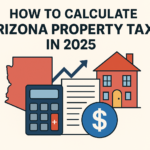If you’re a gig worker, self-employed contractor, or landlord, you’ll want to take note of some changes that may affect the way you handle cash transactions and prepare your rental property taxes moving forward. Payment processing apps like Venmo, Apple Pay, and PayPal have become the go-to method for sending money quickly from one bank account to another. Gig workers collect their fares or delivery fees without ever having to exchange cash or credit cards. And landlords no longer have to gather checks from multiple units and physically take them to the bank. No more bounced checks or hefty fees for non-sufficient funds.
We’re still in the honeymoon phase with online banking, and up until recently, the IRS has had a somewhat laissez-faire attitude about it. Currently, it’s relatively easy to supplement your income with unreported cash earnings from a multitude of side hustles. The underground economy, also known as the shadow economy, used to be the stuff of gangster movies, with shady characters trafficking drugs, weapons, or stolen goods. In reality, most of it is far less sinister, referring to any transaction of goods and services not reported to the government. Though estimates vary, the underground or shadow economy generated as much as $2.5 trillion in unreported income in the U.S. in 2020. The unreported or under-reported income represents nearly 10% of the nation’s GDP and results in billions of dollars in lost tax revenue every year.
New 1099 Requirements
Today, only digital transactions of $20,000 or greater are required to be reported to the government. Beginning in 2022, however, the IRS will start checking digital wallet business transactions over $600. New federal tax laws are designed to make it more difficult for small business owners and self-employed people to avoid paying taxes. If you receive over $600 in income this year on Venmo, Zelle, or PayPal, you will receive a Form 1099-K that you must fill out and file with your taxes next year.
The new changes in how cash app business transactions are reported are included in the American Rescue Plan Act, signed into law by Congress in 2021. Reporting guidelines for digital wallets and other third-party payment processors have now dropped to just $600 in aggregate payments. This is a significant drop from the current $20,000 and will have the most impact on the self-employed, gig workers, and anybody else with a lucrative second career selling items on Etsy, Poshmark, and other online marketplaces. It is estimated that the changes in reporting taxable income will generate over $8 billion in additional tax revenue over the next ten years.
As with any small business owner, the new rules will affect landlords with one or more rental properties. If you use Venmo to collect rent, they will be required to notify the IRS about the rental income you receive. Starting in January 2022, you will receive a Form 1099-K from the IRS with all your reportable payment transactions over $600 in the calendar year. Of course, if you have been operating your business by the book before 2022, you’ll see little change in the way you file your taxes.
And no, this doesn’t suddenly make all peer-to-peer transactions taxable. You can still receive cash gifts and reimbursements that aren’t considered taxable. You will still, however, receive the 1099-K for all transactions over $600. When you file your taxes, you’ll need to identify certain payments as gifts, not income.
As a landlord, you’ll probably be using some contractors at one time or another for cleaning, maintenance, and property management. Any contractor making over $600 will also need to receive a 1099 for landlord duties performed.
Rental Property Taxes Explained
The IRS defines rental property as any single home, mobile home, vacation home, apartment, condominium, or similar dwelling rented out more than 15 days a year. Any net income that you generate from a rental property is taxable as income on your tax return. For example, let’s say you rented out your basement apartment for $1200 a month, earning an extra $14,400 last year. After deducting all of the allowable expenses for maintaining the property, you’ll be taxed on the adjusted amount. That taxable amount will be calculated based on your tax bracket.
Given the high cost of real estate, renting is the only viable option for millions of Americans. As a landlord, you can own a substantial amount of rental property and still pay little to no taxes. And it’s legal as long as you diligently follow IRS guidelines for renting out residential property.
Reporting Rental Income
No one wants a big surprise at the end of the year regarding rental property taxes. You can eliminate a lot of guesswork by staying organized, keeping receipts, and staying on top of changes in IRS guidelines. It can be a lot of work to sort out all the expenses associated with paying for and maintaining the rental property, so here are a couple of tips that can help you calculate landlord taxes.
Regardless of the size of your rental empire, It’s always a good idea to keep those finances separate from your personal banking information. Think about opening a separate account to keep an accurate account of collected rent and expenses associated with owning and renting property. If you’re not comfortable handling the books yourself, hire a reliable accountant or tax preparer who is willing to answer any questions about income and allowable deductions.
For example, did you know that there are different types of rental income? In addition to a tenant’s monthly rent, there may be several additional deposits, pet fees, or extra charges for parking in restricted areas. These are all considered income and are taxed as such. One exception is a security deposit that you intend to return if the property is left in good condition. If you end up withholding a portion of that deposit to repair any damage, it becomes taxable income.
Common Landlord Tax Deductions
The tax laws in the U.S. are very generous to real estate investors and allow a number of deductions that can significantly lower their taxable net income. Here are a few to keep in mind:
- Mortgage interest
- Rental property taxes
- Property insurance
- HOA, condo, or co-op dues
- Home security systems or monitoring services
- Property management and leasing fees if a third party manages your rental for you
- Cleaning, repair, and maintenance costs
- Landscaping fees (even if your tenant takes care of some of the yardwork in lieu of rent.)
- Utilities, including water, trash, and pest control
- Travel expenses, if your rental is located far from where you live
- Additional rental or sales taxes vary and can be levied by the state, county, or city municipalities. (Depending on the city, you may be charged higher fees for short-term rentals)
- Legal and professional fees for an attorney, accountant, or tax preparation service
After subtracting all allowable expenses from rental income, you’ll have your taxable income before depreciation. Keep documentation for everything and create a spreadsheet to monitor all the money coming in and going out. You might be surprised how quickly they add up. A good spreadsheet can help you avoid that last-minute scramble for receipts in mid-April.
Should I use a Digital Wallet to Collect rent?
Digital wallets such as Venmo, Cash App, and Google Pay make it easier for landlords to collect rent online. Payment processing apps are faster and more secure than collecting and depositing paper checks. They’re easy to set up and easy to use, but they do have their downsides.
- Transaction fees can be steep, with some as high as 4%. Some, like PayPal, also charge an additional flat rate fee on top of the transaction percentage. A dime per transaction might not seem like much, but can add up quickly if you have multiple units.
- Digital wallets don’t allow you to control payments. There is no way to block a partial payment if you’re currently involved in the eviction process. Tenants can pay as little as $1 for rent to delay an eviction.
- There is no payment protection for landlords. It’s surprisingly easy to send a cash app payment to the wrong person. If that happens, your tenant will have to take steps to retrieve the money and resend it to you. This process can take days or weeks to resolve, and you may be counting on that cash to pay your own bills.
Are There Alternatives for Landlords?
A dedicated rent collection app like PayRent.com can provide landlords with the security and the convenience of a digital wallet, with many added features that landlords will find helpful. Like these:
- Landlords can accept rent by debit card, credit card, or ACH bank transfer.
- The tenant can set up recurring payments to keep themselves current.
- Send rental payment reminders directly to your tenant through the app.
- Collect security deposits.
- Block partial rent payments to stop eviction delays.
- Get maintenance requests in writing.
- Process digital rental applications.
- Report rental payments to credit bureaus. (This is especially helpful for tenants trying to build a positive credit history.)
- Allow roommates to split rent payments.
- Emergency lending for landlords who need help with cash flow.
And most importantly, PayRent can help landlords keep accurate records to make it easy to prepare for tax season.










